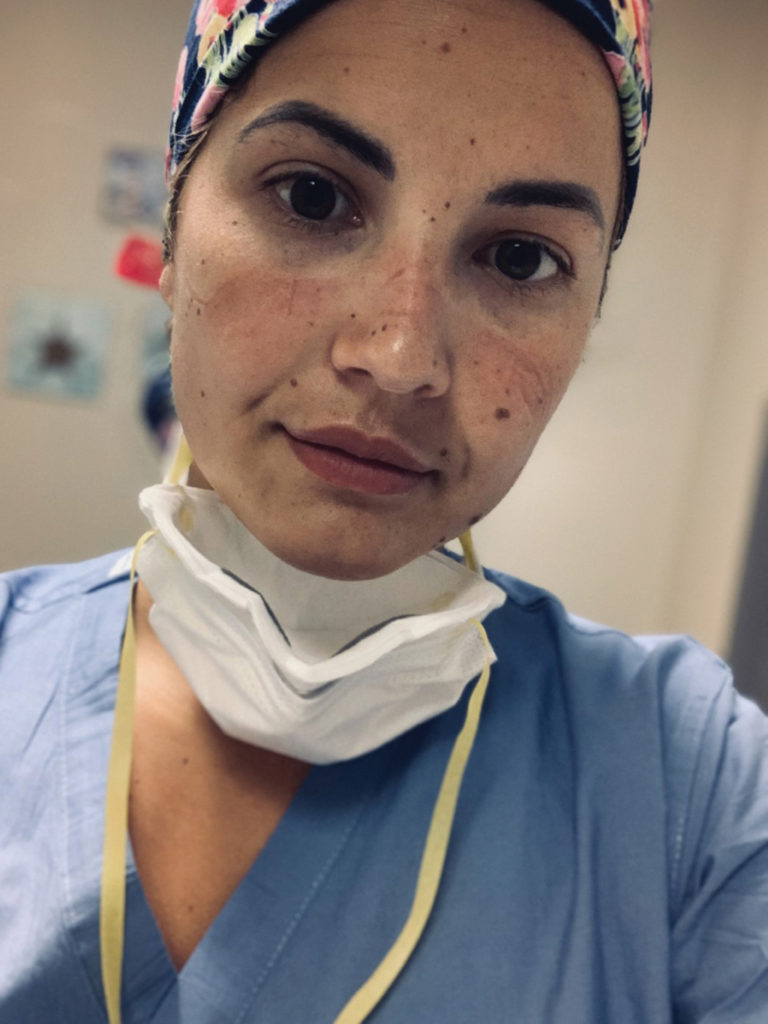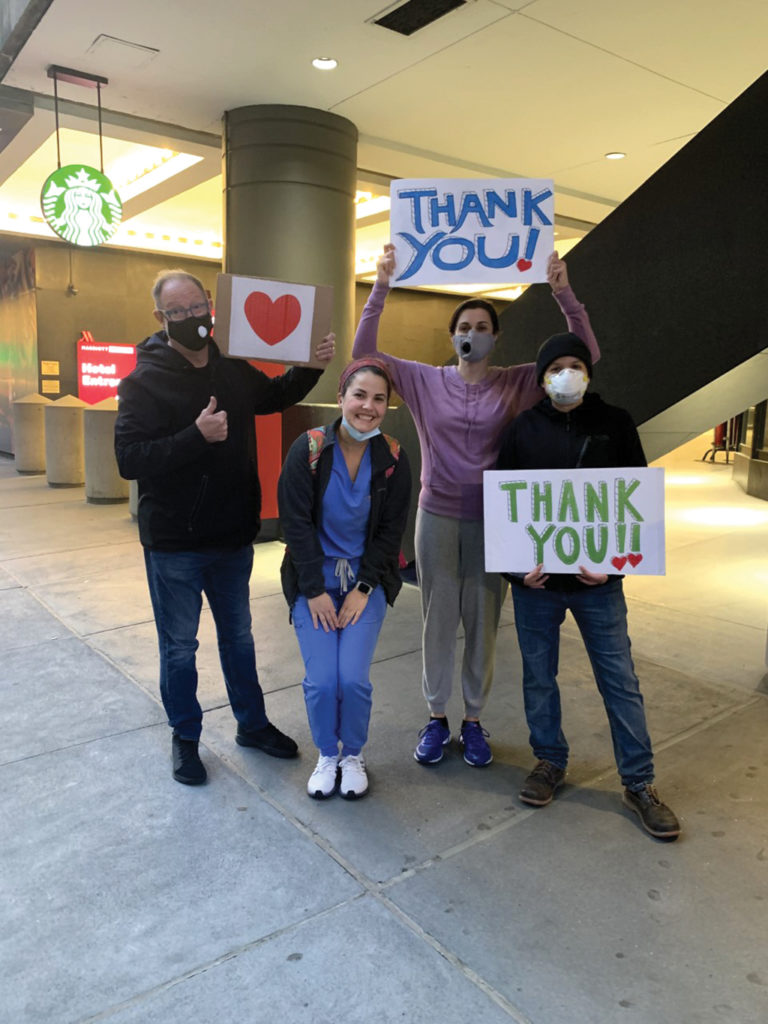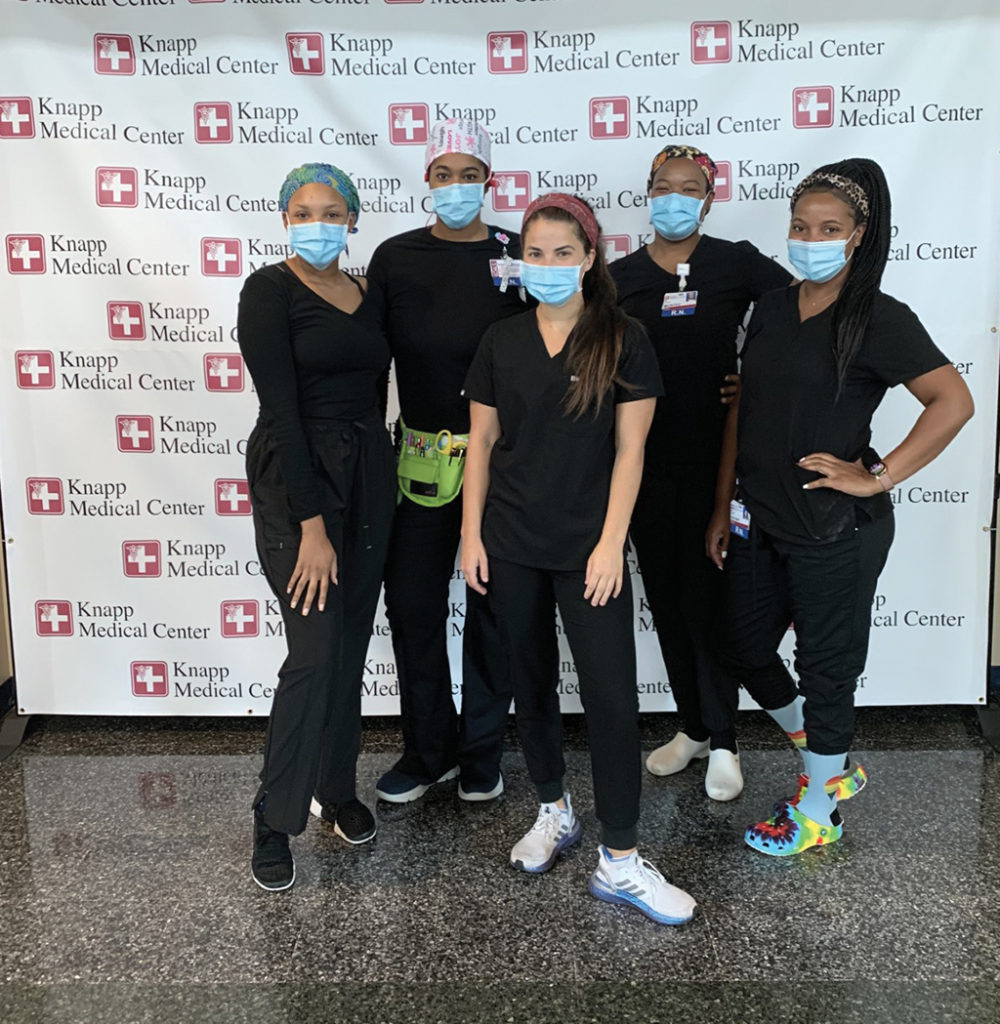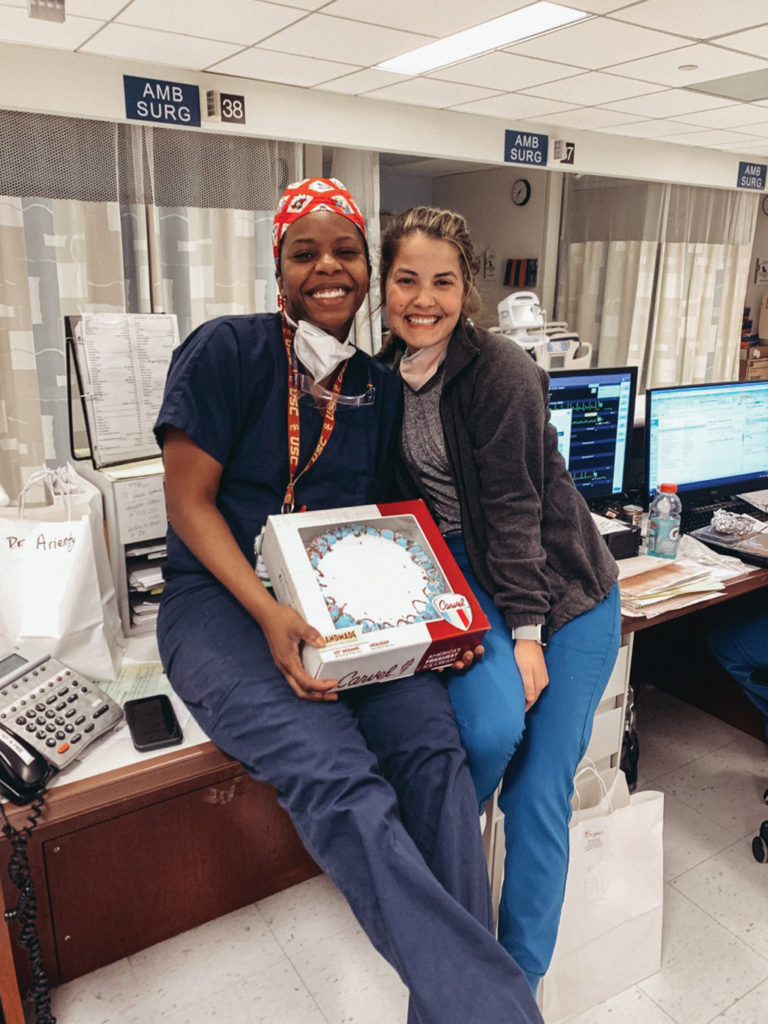Trinity Goodman, BSN, RN ’17 thought when COVID-19 hit the United States it would bring short-term hardship. She quickly came to realize what a severe underestimation that was.

Goodman got her start in nursing at Berea College and only had three years of real-world experience in her field before the virus hit. She admits she made the same mistake as many other Americans in failing to take the virus seriously at first.
“We thought we were untouchable,” Goodman said. “We knew it would reach us, but we thought it would be over in a month. We thought it would never get that bad here.”
She was working in the neurological intensive care unit at Norton Hospital in Louisville, Ky., when she began hearing the horror stories about the virus in New York City. As many of the departments in her hospital closed due to safety protocols, she felt powerless as news about the growing crisis in the Big Apple circulated the internet.
“I just thought, ‘What are we doing here?’” Goodman said. “There were only two of us in the unit that day, and we both just sat and cried. People were dying on the streets there and couldn’t even get into hospitals. I was useless in Louisville.”
As fate would have it, Goodman’s contract was almost up, and she was one of the first group of nurses to be furloughed from Norton Hospital.

“Everything kind of fell into place,” Goodman said. “I really felt at that moment in time, that was the course for my life.”
Goodman and two of her coworkers were hired by a crisis company that would send them to New York City.
“The staffing company posted an ad for 5,000 nurses, and we spent all day calling. We tried from seven different phones for 10 hours,” Goodman recalled. “We finally got through, and that was it.”
Within 24 hours, she arrived in New York and settled into one of many hotels filled with thousands of nurses. Shortly thereafter, she began her contracted 21 days, which would later extend to eight weeks. Her experience in New York ignited her passion and desire to continue to help aid the COVID-19 crisis all over the country.
“I definitely knew where I wanted to go and what I needed to be doing,” Goodman said.
After New York, she spent only a couple weeks at home before taking another contract in southern Texas. Goodman admitted even her experience thus far with the virus couldn’t have prepared her for the devastation in Texas.
“While I was in New York, we never ran out of ventilators or personal protective equipment (PPE),” Goodman explained. “In Texas, we ran out of PPE, and we ran out of ventilators frequently. People were dying, and we ran out of life-saving medications; we couldn’t keep them alive.”

The reality was grim, and Goodman was one of many exhausted and brokenhearted nurses fighting an uphill battle. She was performing chest compressions and several other life-saving procedures for hours at a time, leaving her soaked in sweat and without time to tend to her own needs before moving on to the next patient.
In addition to the physical and emotional stress of deciding which patients received very limited resources, Goodman was responsible for calling the families of those who had passed away from the virus.
“It was absolutely the most miserable thing I’ve ever dealt with,” Goodman said. “Unfortunately, I don’t think one patient survived.”
After working 14-hour shifts for four weeks, Goodman was more than ready to go home. She recalled feeling like she had to leave south Texas for her own mental stability.
“I was so desperate to go home that I drove the full 18 hours without stopping once to sleep,” Goodman said.

Little did she know, she would bring the virus home with her. She said it knocked her off her feet for quite a while.
“I remember the extreme fatigue,” Goodman said. “I couldn’t even walk to the bathroom or anything for a month.”
While the fatigue subsided, some symptoms still remain. She shared that, despite having contracted the virus in August, her sense of taste and smell are still muted. Having played tennis at Berea College, she has always kept herself in good physical condition, but Goodman finds that exercise is still very difficult. “I can hardly finish a 20-minute [stationary bike] ride without feeling like I’m going to pass out,” she said.
Goodman continues to overcome the effects of the virus while she works and puts herself through nurse practitioner school. She is currently stationed in Dallas and was present for the gridlock when hundreds of thousands of Texans were without power and facing life-threatening weather conditions.
After one trip to New York City and three to Texas, Goodman still endures the challenges facing our healthcare workers as they make the ultimate sacrifice. She will continue to stand bravely on the frontlines of COVID-19 and support the communities around her whenever called upon.

